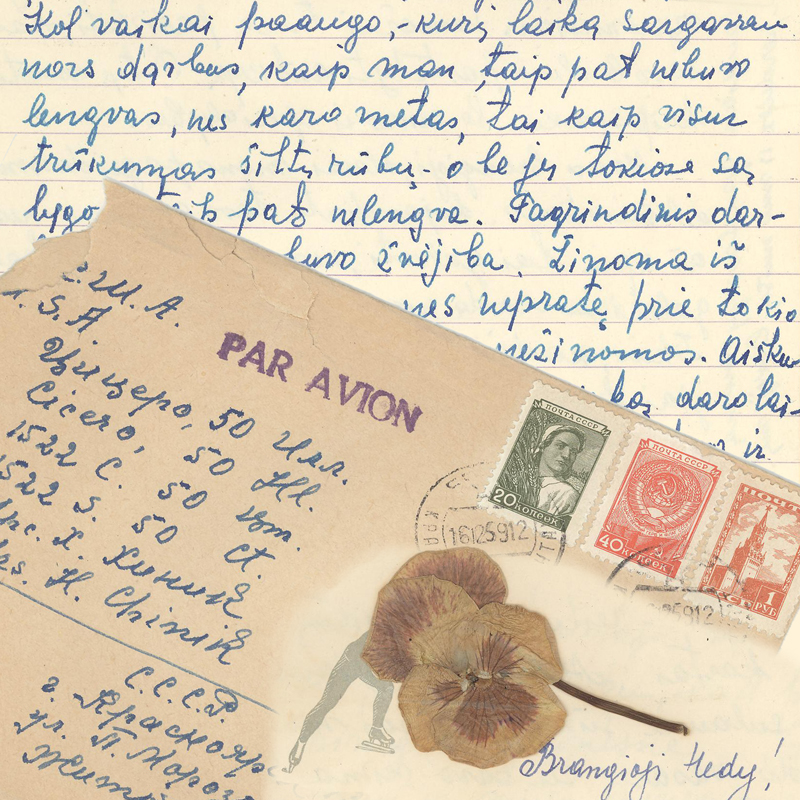15 years in the High Arctic
Posted on February 27, 2012
Elze Zimkeviciene writing from the Kazachinsky district of Krasnoyarsk, to Hedy (Jadzyte) Chinik in Cicero. In these letters she describes her family’s deportation to the high arctic, to the delta of the Lena River, at the Laptev Sea, a part of the Arctic Ocean. She inquires about two letters that she sent by registered airmail which never arrived, and comments that she will only send letters by ordinary air mail. Given the sensitive materials she mentions in the surviving letters, and the active censorship of all mail, one can only guess at the content of the missing registered letters. In one letter she enclosed dried flowers from Siberia. She wrote:
We were tossed far into the north of Yakutija, near the Lena River, on the island called Tit Ary. We were there fifteen years. I think it is hard to envision the difficulties of living there. It was very difficult getting accustomed to the harsh climate. There were nine months of winter, and basically no summer. Polar nights were long and the cold was severe. We had to survive the cold.
I raised four sons, but none have married–in these circumstances it is very difficult to find someone compatible with you.
There was a severe shortage of warm clothing. In this climate, not having warm clothing made life extremely difficult. The primary occupation was fishing. At first it was very difficult because I was not used to this kind of work, and did not know my way around. But time heals everything. Little, by little, I got used to it. During the last year there, I was a very good fisher-woman, and even ended up on the year’s honor roll.
We had our own transport team–12 reliable dogs and a sled. We fed them fish and porridge. We used their fur (wool) to make gloves and socks.
There is no summer, but on warmer days, on the tundra, it is possible to find various berries–they grow right next to the earth–and are similar to raspberries.
All vegetables here are dried. That is why we all suffer from scurvy. Fairly quickly after arriving here, we lost all our teeth.
My husband worked various jobs. In the beginning, he worked as a lumberjack in the Altai Region, then he built houses in the far north and remodeled them. Finally, he worked as a fisherman and studied meteorological phenomena.
My husband has retired. But the pension he receives is very small, so he has to continue working. He can only work where it is warm, and so he stokes stoves. He works 12 hours a day, which tires him extremely.
I wish Mary all the best fighting her illness, because I myself have rheumatic inflammation of my joints, a consequence of “the good life”.



